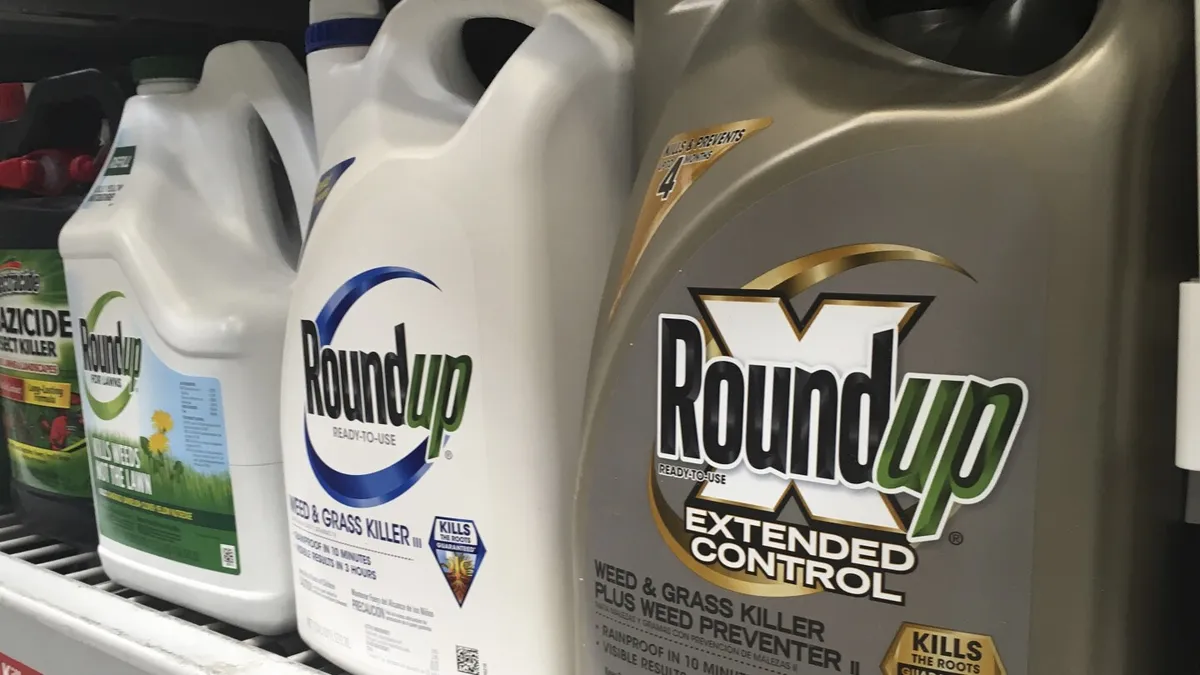
A jury in Georgia has ordered Bayer, the parent company of Monsanto, to pay nearly $2.1 billion in damages to a plaintiff who claims that the company’s Roundup weed killer caused his cancer. This significant verdict, reached in a Georgia courtroom late Friday, represents the latest episode in a series of ongoing legal battles that Monsanto has faced regarding its herbicide product, Roundup.
The jury awarded the plaintiff, John Barnes, $65 million in compensatory damages and $2 billion in punitive damages, as reported by law firms Arnold & Itkin LLP and Kline & Specter PC. This payout is one of the largest legal settlements linked to Roundup-related cases to date. Barnes filed his lawsuit in 2021, citing non-Hodgkin’s lymphoma as a direct consequence of using Roundup.
Kyle Findley, the lead attorney for Arnold & Itkin, expressed that the verdict is a significant step forward for Barnes, enabling him to access necessary cancer treatment. Findley stated, “It’s been a long road for him ... and he was happy that the truth related to the product has been exposed.” He emphasized that this ruling serves as an important milestone in holding Monsanto accountable for its actions concerning Roundup.
Germany-based Bayer has announced its intentions to appeal the verdict, reiterating its stance that Roundup is safe for use. The company has faced over 177,000 lawsuits related to Roundup and has allocated $16 billion to settle these cases. In a statement, Bayer asserted that the jury's decision contradicts the prevailing scientific evidence and regulatory consensus regarding the safety of Roundup.
Roundup is utilized widely in agriculture, particularly for crops such as corn, soybeans, and cotton. It is designed to be used with genetically modified seeds that withstand the herbicide's effects, allowing farmers to enhance productivity while minimizing soil disturbance. However, studies have raised concerns about glyphosate, the active ingredient in Roundup, with some linking it to cancer. The U.S. Environmental Protection Agency (EPA) has stated that glyphosate is unlikely to pose a carcinogenic risk to humans when used as directed, yet many lawsuits contend that Monsanto has failed to adequately inform the public about the potential dangers.
Findley has claimed that evidence in Barnes’ case reveals “many years of cover-ups” and “backroom dealings” by Monsanto. He accused the company of ignoring scientific research that highlights the toxicity of Roundup and attempting to distract from the connection between the product and non-Hodgkin’s lymphoma. This latest ruling marks the fourth substantial Roundup verdict won by Findley’s team, with the largest previous award totaling $2.25 billion in Philadelphia earlier this year.
Despite the unfavorable verdict, Bayer maintains its commitment to challenging these cases in court, asserting that its track record in Roundup litigation supports the safety of its products. The company has reported victories in 17 out of the last 25 related trials, while some earlier damages awarded have been reduced.
This ongoing saga surrounding Roundup and its potential health risks underscores the complex relationship between agriculture, product safety, and consumer protection. As more cases unfold, the implications for Bayer, agriculture, and public health continue to be significant.